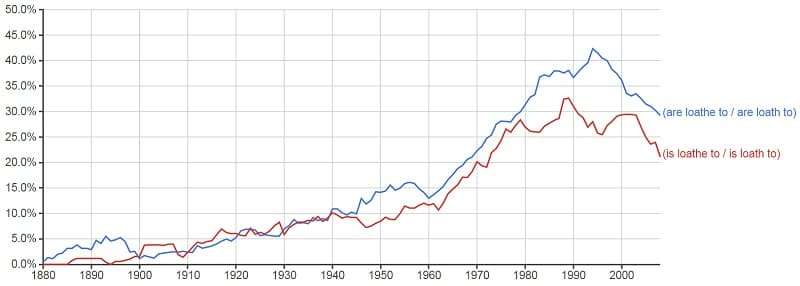The Volokh Conspiracy
Mostly law professors | Sometimes contrarian | Often libertarian | Always independent
Loathing the use of 'loathe' instead of 'loath'?
I've long been annoyed by the locution "is loathe"; I had thought it was "he loathes doing X," or "he is loath to do X," but not "he is loathe to do X." "To loathe" means "to hate" (more or less), "loath" means "disinclined." You are loath to do what you loathe.
Well, it looks like dictionaries are on my side, but time is not. I checked the Random House (dictionary.com), the American Heritage and the Oxford English Dictionary, and they all list "loathe" only as a verb. But Google Ngrams reports that "is loathe to" and "are loathe to," while formerly quite rare, are now at 1/4 to 1/3 of the frequency of "is loath to" and "are loath to." Recent years have seen a bit of a countertrend away from "is/are loathe to," but I doubt that's much of a countertrend.

So it seems that "is/are loathe to" have either become standard (since they are a substantial minority spelling, rather than a small minority, as they once were), or are likely to become standard soon, if the overall trend since 1960 holds. But I'd still advise my students to stick with "loath to" for now, just because the more idiomatic spelling tends to be less likely to be distracting. (I'd also advise them to avoid "loth to," which is in the dictionaries as an alternate spelling of "loath," but which is likewise likely to be distracting.)


Show Comments (0)